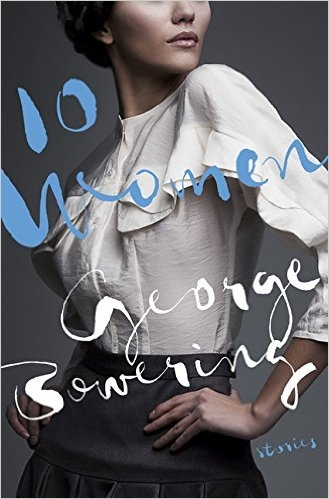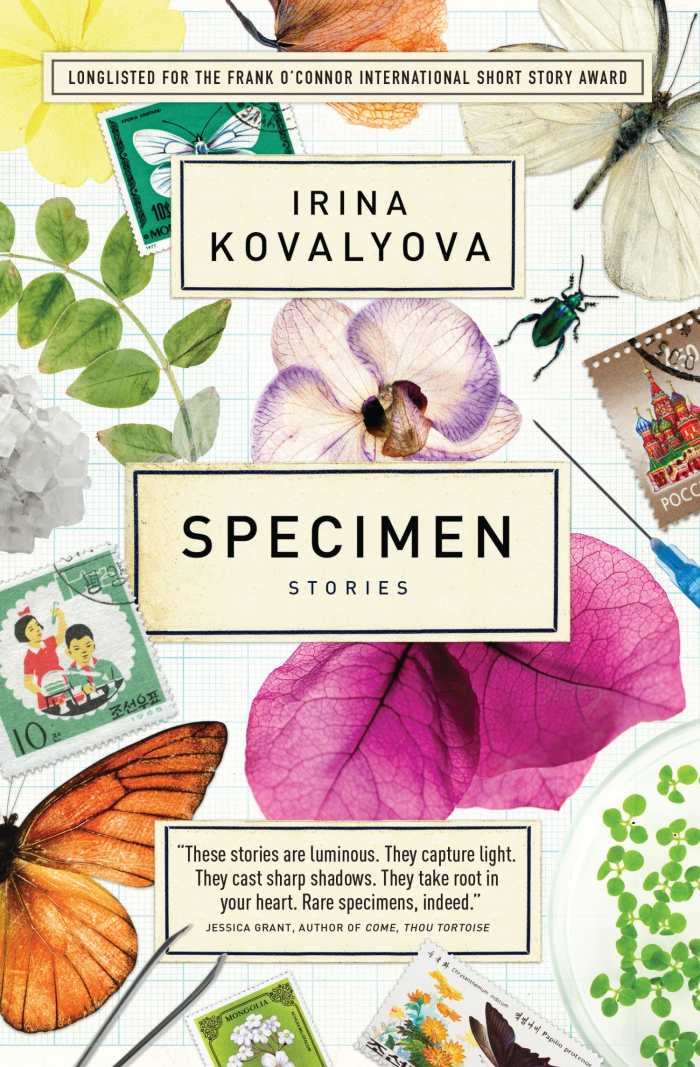Here are 4 Ways Shorter Can Be Better

Sometimes the stories that pack the most punch are the little ones. All the subtleties, nuances, and details of a novel condensed into one short but wild ride. Perfect if you want all the fun of a full-length book but haven’t got the time to stretch the adventure out. We have a great selection of short adventures to choose from in our Spring 2016 issue. From real events, to some more magical, you can find the perfect experience in just a few short pages.
10 Women

George Bowering
Anvil Press
Softcover $20.00 (192pp)
978-1-77214-031-6
Literary escapades enlighten and entertain in this boundary-pushing collection.
This off-the-wall collection of character sketches paints eccentric women in darkening shades of realism. George Bowering’s 10 Women crosses the boundaries drawn between fantasy figures and mundane individuals, creating perfect balances and intrigues.
Forbidden interludes, experiences that awaken, and pondering disclosures fill the pages of this unique book. Told from the viewpoint of interested and, in some places, strangely disinterested male narrators (with an occasional female exception), each story conveys a thought-provoking concept or a message that decimates a common preconception about heterosexual interactions.
Vacillating between detachment and intense interest, the raconteur can be clinical or engaged, depending on circumstances. Subdued with the disillusionment of a randy youth and spiced with the snarky humor of a sage, these carefully crafted scenarios are infused with double entendres. One quick read may not be enough to decipher the real intent behind the bizarre characterizations and strategic maneuvering of these literary players. The contents page is a list of ten names. The personalities that emerge are unforgettable.
10 Women is word punch spiked with an intoxicating brand of comedy, and every woman in it is fortified with dizzying power shots. Memorable phrases linger beyond the morning after. At times, Bowering seems to be maliciously mocking his own creations, but a tempering voice reaches between the lines to calm and control the verbal attacks on these tempting targets.
Descriptive passages are pared down with only the potent essence extracted from what could have been an overabundance of verbiage, a result all too typical when placed in the hands of a writer less sophisticated than Bowering. He instructs by example, for reading his work teaches more than a year in the English department—his is a succinct, yet formidable style.
10 Women is a fictional compilation of lessons gleaned from relationships that left a lifelong impression. Bowering may have allowed his personal encounters to influence these candid snapshots—an admission that his back cover blurb hints at playfully—yet he leaves it to his critics to decide whether he is serious. He possesses a strong command of language, along with an appealing ability to downplay, even poke at, the unfortunate protagonists in his stories. His literary escapades enlighten and entertain, allowing an eye-opening glimpse of liaisons that do not always play by an established set of rules.
JULIA ANN CHARPENTIER (February 29, 2016)
Adulterous Generation
Stories

Amy L. Clark
Queen’s Ferry Press
Softcover $16.95 (170pp)
978-1-938466-54-0
These stories tap into our collective anxiety and defy social norms.
Amy L. Clark’s short-story collection, Adulterous Generation, consists of twenty arresting stories that present moments in which seemingly nurturing environments become inhospitable to sustaining new life. As a result, Clark’s characters become “adulterous” to the status quo, that is, they stop adhering to standard social mores or senses of duty.
“Moments like these, she thinks it is more likely that the baby could survive in a fluorescent NICU than in her agonized and frustrated body,” imagines one conflicted character. The wife in another story begins to covertly throw dishes in the trash instead of washing them. Then there’s a foster child who risks his new home life by flooding the bathroom to make a better home for reptiles. In another remarkable story, when two female night-shift workers at neighboring businesses strike up a friendship, one eventually uses the other’s anti-rape weapon against her to rob her cash register.
Clark’s tone through the collection is notably somber. In “Quarters,” a pregnant wife abandoned when her husband enlists in the Marines becomes increasingly rattled that the broken laundromat dryer is cool, ultimately leading her to act out sexually with a nearby disabled man.
Clark expertly weaves in many symbols like the cool dryer that hint at the deterioration of domestic bliss. In “Remembering My Mother in My Oscar Speech,” a teenager tries to cash in on the Barbie dolls her mother made her keep in boxes as collectibles, only to find that their pretty faces and perfect arms have been chewed up by mice.
Clark taps into a collective anxiety, an awareness that we all have our breaking points, and that they may turn out to be as minor as the sight of a mauled doll or a too-cool dryer. Her stories, then, are therapeutic in that they remind us that we could all be just one blaring smoke alarm away from losing it.
Adulterous Generation offers relief via a few rare instances of genuine human connection—the foster brother who stays with his sibling as he waits to get in trouble, the clerk who helps a robber get away because she wants to get away too. Clark artfully drops slight flashes of humanity into her collection as if to signify that all is not lost.
AMANDA MCCORQUODALE (January 26, 2016)
Specimen

Irina Kovalyova
House of Anansi Press
Softcover $15.95 (256pp)
978-1-77089-817-2
Buy: Local Bookstore (Bookshop)
The facts of sex and inheritance cannot explain away human emotion in this strong, science-themed story collection.
“People like to pretend that our genes define the truth for us. But I assure you that’s not the case,” a character insists in the title story from biochemistry lecturer Irina Kovalyova’s first book, Specimen. Diverse in setting and form, these nine stories, long-listed for the Frank O’Connor International Short Story Award, contrast the scientific understanding of genetics with deeper wisdom about the bonds of love and family.
In “Mamochka,” a physics archivist comes to terms with her daughter’s interracial baby, while in “Gonos,” a biology lecturer realizes his obsession with fruit-fly genetics has distanced him from his only son. Joy, the protagonist of “Specimen,” is dismayed to learn that her biological father was a sperm donor; in “The Side Effects,” Paula gets Botox injections to eliminate wrinkles, a metaphor for numbing feelings rather than dealing with them.
Divided equally between first- and third-person perspectives, the stories often employ unusual structures. For instance, “Gdańsk,” about post-Soviet cultural exchanges, is a numbered list; “The Big One,” an apocalyptic tale of a mother and daughter trapped by an earthquake, splits into two columns: on the left is what’s happening; on the right are the mother’s thoughts and sustaining memories. The standout, “Peptide p,” resembles an academic paper—with an abstract, figures, and appended interviews with parents whose young children survived an epidemic of “heart break disease.”
Novella-length “The Blood Keeper” is the fullest expression of Kovalyova’s recurring themes of sex and family inheritance. Vera, a Russian botanist on a North Korean exchange, embarks on a forbidden love affair, and, against a backdrop of Darwinism and the smuggling of drugs and dissenters, has to protect what she most values. Too much plot is crammed into the final section, though; this one is worth expanding into a full-length novel.
Nestling science into rich psychological narratives, Kovalyova’s work is reminiscent of that of Andrea Barrett and A. S. Byatt; in fact, the latter is directly referenced in one story. Kovalyova also channels Anthony Marra and Adam Johnson by affirming love’s survival in spite of repressive situations.
REBECCA FOSTER (February 29, 2016)
The Assimilated Cuban’s Guide to Quantum Santeria

Carlos Hernandez
Rosarium Publishing
Hardcover $19.95 (240pp)
978-1-4956-0740-0
Hernandez’s quantum-magical realist style strikes upon a potent literary vein.
Carlos Hernandez combines the strong Latin tradition of magical realism with a dose of science fiction to create The Assimilated Cuban’s Guide to Quantum Santeria, an outstanding collection of short stories.
Hernandez, an author, teacher, and game designer, offers stories populated by Latin characters and grounded in Latin traditions, including the title story, about a young boy’s exploration into “Quantum Santeria.” As that title indicates, there’s also a consistent element of science fiction in these stories that unshackles Hernandez’s imagination and eliminates any trace of predictability.
Hernandez’s writing is refreshingly simple and direct, yet full of unique descriptions and beautiful metaphors and similes. Corn is “swaying like the crowd at a revival.” A man “was starting to slacken and fatten; he was starting to melt into his wheelchair.” Hernandez is as capable of pithy epigrams like “Vocations don’t grant vacations” as he is of a detailed description that perfectly portrays a professorial type: “the kind of man who has to bite down on a pipe (or in his case, a puro) to remind himself that he has a body as well as a mind.”
The strong Latino characterization gives a unique slant to the stories, but Hernandez’s imagination is the real attraction. There are tales of quantum physics, unicorns, and panda mating practices, among others, but all are so masterfully realized that there’s barely an air of science fiction tropes to be found. In “The International Studbook of the Giant Panda,” Hernandez convincingly describes the robot pandas and the interface that allows the human operator—reporter Gabrielle Real, a character featured in multiple stories—to “feel like a panda.” Soon after, he paints a picture of panda perceptions so vivid that the book becomes analogous to the the fictional interface, putting the reader into the panda’s world, and that of the character experiencing it.
Through the eyes of Gabi Real or other characters, Hernandez’s quantum-magical realist style has struck upon a potent vein, appealing to the literary minded and science fiction fans alike.
PETER DABBENE (January 26, 2016)
Hannah Hohman
